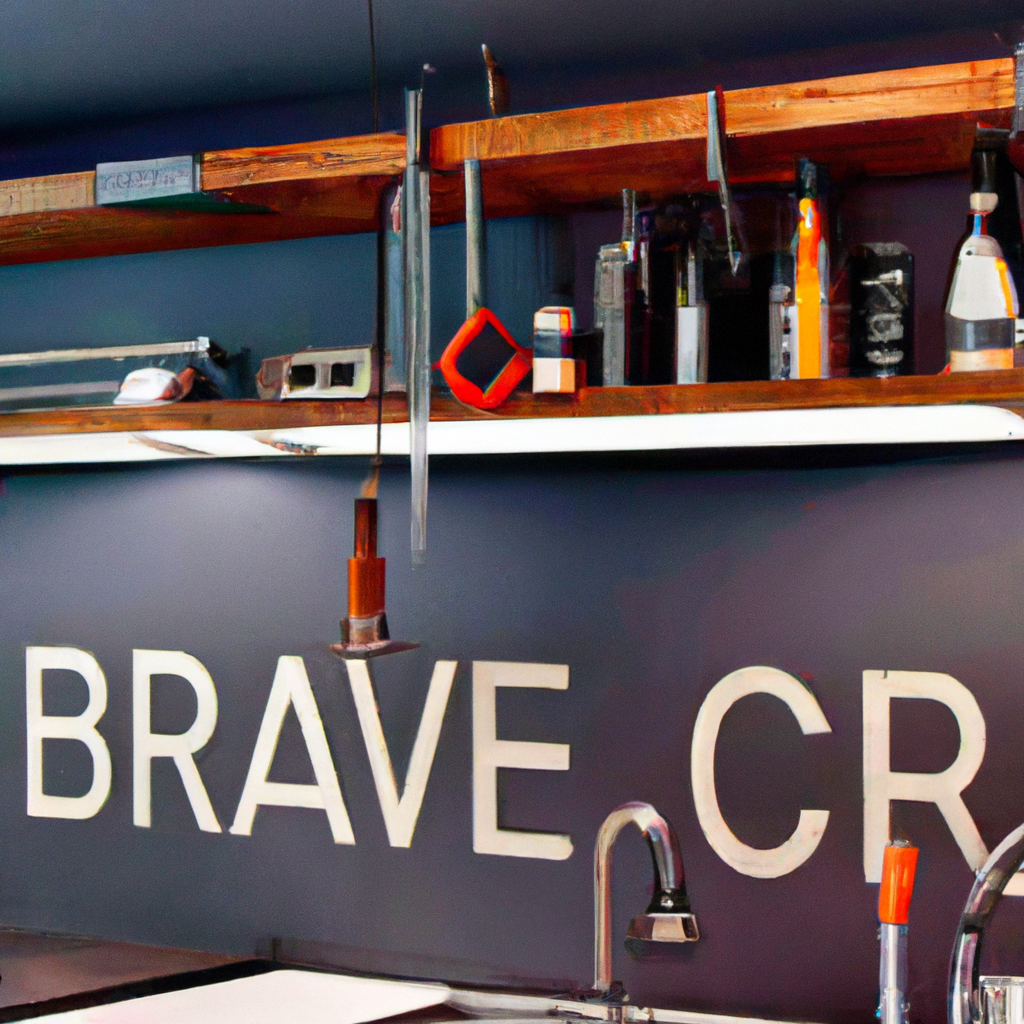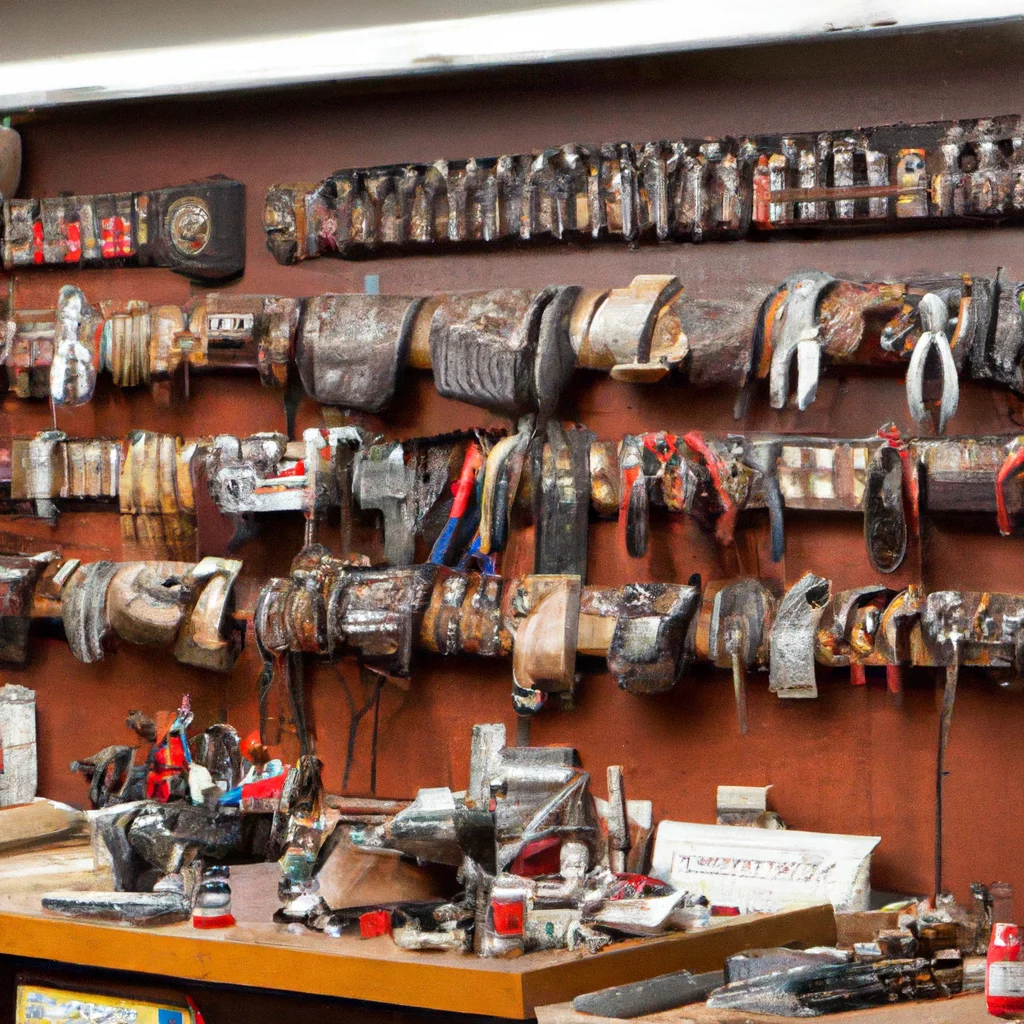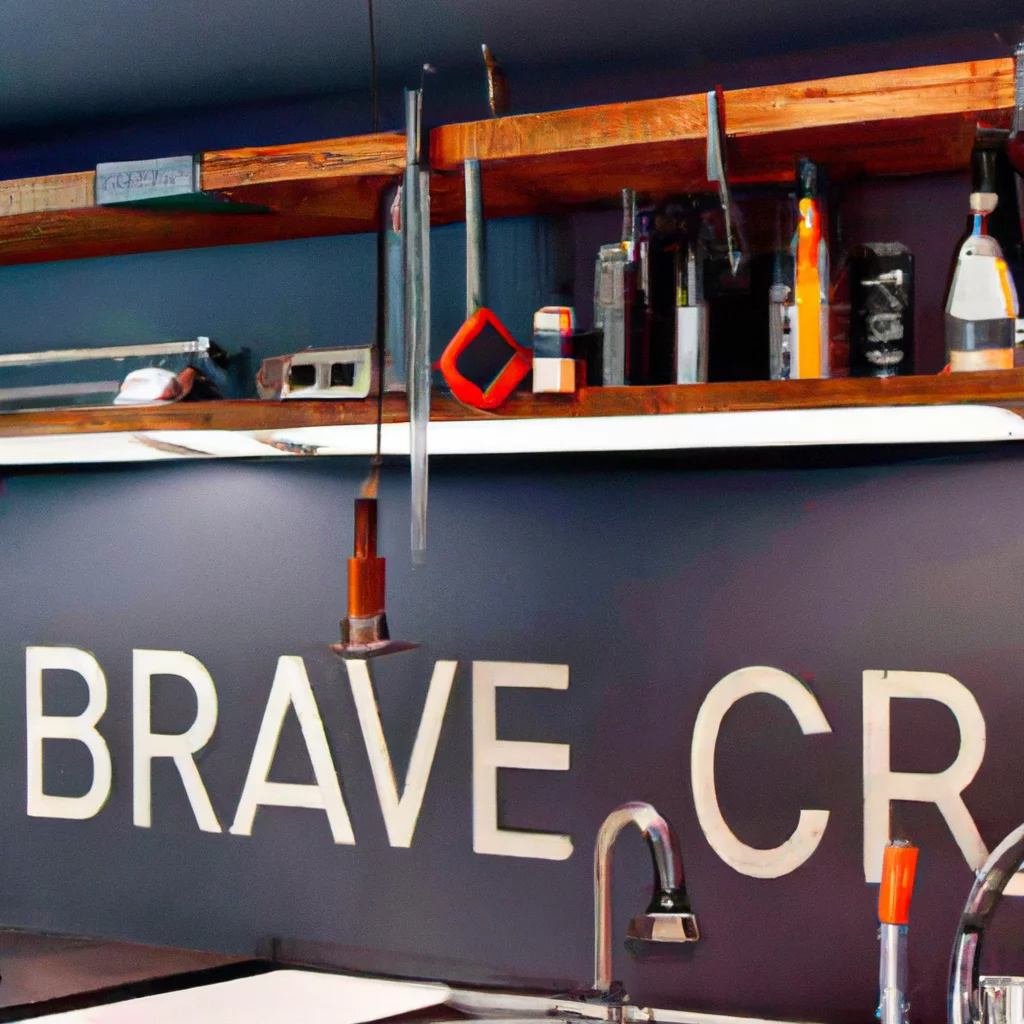I couldn’t be more excited to share with you all the amazing possibilities that come with creating your very own man cave workshop. From unique themes to practical ideas, this article is here to ignite your imagination and provide you with all the inspiration you need to turn your space into the ultimate man cave workshop. Whether you’re a seasoned handyman or simply enjoy tinkering with tools, these ideas will help you create a space that is not only functional but also a reflection of your personal interests and passions. So grab your tool belt and get ready to dive into a world of creativity and craftsmanship!
Design and Layout
Determining the size and location
When it comes to designing your man cave workshop, the first step is to determine the size and location of your workspace. Consider the available space in your home and choose a spot that is both practical and accessible. You want to ensure that there is enough room for all your tools and equipment, as well as space to move around comfortably.
Creating a functional layout
Once you have determined the size and location of your workshop, it’s time to create a functional layout. Think about the flow of your work and how you will use the space. Consider the placement of your workbench, tool storage, and any other workstations or equipment you may have. You want to ensure that everything is easily accessible and that you have enough room to work efficiently.
Considering storage solutions
Storage is essential in any workshop, and it’s important to consider your storage needs when designing your man cave workshop. Think about the types of tools and equipment you have and how you will organize them. Cabinets, shelves, and pegboards are great options for storing your tools and keeping everything organized. Consider your space constraints and choose storage solutions that maximize your available space while still providing easy access to your tools.
Essential Tools and Equipment
Must-have power tools
Every man cave workshop needs a set of essential power tools. These tools will help you complete a wide range of projects and tasks. Some must-have power tools include a drill, circular saw, jigsaw, and sander. These tools will allow you to cut, shape, and refine materials with ease. Invest in high-quality tools that are durable and reliable, as they will give you better results and last longer.
Basic hand tools
While power tools are important, don’t forget about the basics – hand tools. A set of basic hand tools is essential for any workshop. Tools such as screwdrivers, wrenches, pliers, and hammers should be readily available. These tools are versatile and can be used for various tasks, such as assembling furniture, tightening screws, or making minor repairs. Having a well-stocked toolbox with a variety of hand tools will ensure that you have what you need to tackle any project.
Safety equipment
Safety should always be a top priority in your man cave workshop. Make sure you have the necessary safety equipment to protect yourself while working. Safety glasses or goggles are essential for eye protection, especially when using power tools. Ear protection, such as earplugs or earmuffs, can help minimize noise exposure and prevent hearing damage. Additionally, gloves, a dust mask, and a fire extinguisher are also important items to have on hand in case of emergencies.
Workbench and Tool Organization
Choosing the right workbench
A workbench is the centerpiece of any workshop, so it’s crucial to choose the right one for your man cave. Consider the size, height, and durability of the workbench. You want a workbench that is sturdy enough to support your projects and provides enough workspace for you to comfortably work on. Look for a workbench with built-in storage, such as drawers or shelves, to maximize efficiency.
Organizing tools efficiently
Having an organized workspace is key to a productive workshop. Invest in tool organizers such as tool chests, tool cabinets, or toolboxes to keep your tools neatly sorted and easily accessible. Consider using foam inserts or custom-cut foam to securely hold your tools in place and prevent them from rolling or shifting around. Labeling drawers and shelves can also help you quickly find the tools you need.

Using pegboards and magnetic strips
Pegboards and magnetic strips are inexpensive yet highly effective ways to keep your tools organized and within reach. Install a pegboard on the wall and hang your frequently used hand tools such as wrenches, pliers, and screwdrivers. Use hooks, baskets, or shelves to store other tools, accessories, or small hardware items. Magnetic strips can be used to hold metal tools, making them easy to locate and keeping them off your workbench.
Lighting and Electrical Setup
Installing proper lighting fixtures
Good lighting is essential for a functional workshop. Install proper lighting fixtures that provide bright, even lighting throughout the entire space. Consider both overhead lighting and task lighting. Overhead lighting should illuminate the entire workshop, while task lighting can be directed towards specific areas, such as the workbench or power tool stations. LED lights are a popular choice as they are energy-efficient and provide clear, white light.
Adding electrical outlets
Having sufficient electrical outlets in your workshop is crucial for powering your tools and equipment. Ensure that you have enough outlets to accommodate all your power needs. Consider installing additional outlets along the walls or on your workbench for easy access. If possible, separate the power outlets into different circuits to avoid overloading and tripping circuit breakers. It’s also a good idea to invest in surge protectors to protect your tools from power surges.
Considerations for power tools
Power tools require more electrical power than hand tools, so it’s important to ensure that your electrical setup can accommodate their needs. Check the power requirements of your tools and make sure your electrical system can handle them. If necessary, consult with an electrician to ensure that your workshop has the proper wiring, circuit breakers, and outlets for your power tools. Safety should always be the priority when dealing with electricity, so don’t hesitate to get professional help if needed.
Flooring Options
Durable and easy-to-clean flooring choices
When it comes to workshop flooring, durability and ease of cleaning are key considerations. Look for flooring options that can withstand heavy use and are easy to maintain. Materials such as concrete, tile, or vinyl are excellent choices as they are resistant to spills, stains, and wear and tear. Avoid carpeting or hardwood floors, as they can be easily damaged by dropped tools or spills.
Epoxy coating for concrete floors
If you have a concrete floor in your workshop, consider applying an epoxy coating. Epoxy not only provides a durable, easy-to-clean surface but also adds a professional and polished look to your workshop. It creates a seamless, smooth finish that is resistant to chemicals, oil, and grease. Additionally, epoxy coatings can be customized with different colors or patterns to suit your personal style.
Rubber or foam flooring for impact absorption
To protect both yourself and your tools, consider adding a layer of rubber or foam flooring in your workshop. These flooring options provide excellent impact absorption, reducing the strain on your joints and minimizing the risk of damage to delicate tools. Rubber flooring is durable and easy to clean, making it a popular choice for heavy-duty workshops. Foam flooring, on the other hand, provides a softer and more cushioned surface, ideal for those who spend long hours standing in the workshop.
Soundproofing and Insulation
Reducing noise levels for a peaceful environment
Noise can be a significant issue in a workshop, especially if you live in a residential area or have neighbors close by. To reduce noise levels and create a peaceful environment, soundproofing is essential. Start by insulating the walls and ceiling with materials that have good sound-absorbing properties. This can include installing soundproof drywall or adding acoustic insulation. Additionally, consider placing sound-absorbing panels or acoustic tiles on the walls to further reduce noise reflections.

Insulating walls and ceilings
Proper insulation is not only important for soundproofing but also for temperature control in your workshop. Insulating the walls and ceilings will help maintain a comfortable temperature year-round, making it easier to work in any weather condition. Insulation materials such as fiberglass batts or foam panels can be installed between wall studs or ceiling joists to provide excellent thermal insulation.
Acoustic panel installation
To improve the sound quality and minimize echoes in your workshop, consider installing acoustic panels. Acoustic panels are specifically designed to absorb sound waves and reduce reverberation. They come in various sizes, shapes, and colors, allowing you to customize the look of your workshop while improving its acoustics. Place the panels strategically on the walls, focusing on areas where sound reflections are the strongest.
Workspace Inspiration
Rustic workshop theme
If you’re a fan of rustic aesthetics, consider designing your man cave workshop with a rustic theme. Incorporate natural materials such as reclaimed wood, rustic metal accents, and vintage tools into your workshop’s design. Install barn-style sliding doors or use old wooden crates as storage solutions. Add cozy touches like a vintage-inspired workbench and antique lighting fixtures to create a warm and inviting atmosphere.
Industrial-style setup
For those who prefer a more modern and edgy look, an industrial-style workshop is the way to go. Use materials such as exposed brick, metal shelving, and concrete flooring to achieve an industrial vibe. Opt for sleek and minimalistic workbenches and storage solutions. Add pops of color with industrial-style lighting fixtures or vibrant tool chests. Don’t forget to display your collection of vintage industrial tools to complete the look.
Nautical or automotive-themed workshops
If you have a specific hobby or interest, consider incorporating it into your workshop’s design. For nautically inclined individuals, a workshop with a nautical theme can be a great choice. Use boat cleats as wall hooks, incorporate maritime colors like navy blue and white, and display nautical-inspired decor. For car enthusiasts, an automotive-themed workshop can be the perfect space to showcase your passion. Hang car-themed posters, display vintage car parts, and use automotive-inspired colors like red and black to create a dynamic and personalized workspace.
Custom Workstation Ideas
Foldable workbench
If you have limited space or need a versatile work area, a foldable workbench is a fantastic option. This type of workbench can be folded up and stored against the wall when not in use, allowing you to maximize your available space. Look for a foldable workbench that is sturdy and has a locking mechanism to ensure stability when you’re working on it. Some foldable workbenches also come with built-in storage for added convenience.
Mobile tool cart
A mobile tool cart is an excellent addition to any man cave workshop, providing you with a portable and organized workspace. Look for a tool cart with sturdy wheels and multiple drawers or shelves to store your tools. This way, you can easily move your tools and supplies around the workshop as needed. A mobile tool cart is especially beneficial if you work on larger projects that require you to frequently change your location.
Integrated tool storage in workstations
To create a seamless and streamlined workspace, consider integrating tool storage directly into your workstations. Custom-built workbenches or countertops can be designed with built-in drawers, shelves, or tool racks to keep your tools within arm’s reach. This eliminates the need for separate storage units and maximizes the functionality of your work area. Having everything organized and easily accessible will improve your workflow and save you time and effort.
Organization and Shelving Solutions
Cabinets for tool storage
Cabinets are a classic and effective tool storage solution for any workshop. They provide ample space and allow you to keep your tools hidden away, reducing clutter and creating a clean and organized appearance. Look for cabinets with adjustable shelves to accommodate tools and equipment of different sizes. Consider adding labels or using clear plastic bins to further enhance organization and ease of locating specific tools.
Modular shelving systems
Modular shelving systems are a versatile and customizable option for tool storage. They consist of individual shelves or units that can be mixed and matched to suit your specific needs. Modular shelving allows you to adjust the height and spacing of the shelves, making it easy to store tools of various sizes. Additionally, these systems are easy to assemble and can be expanded as your tool collection grows.
Wall-mounted storage options
Utilizing the vertical space in your workshop is essential to maximize storage capacity. Wall-mounted storage options, such as wall cabinets, shelves, or racks, are ideal for keeping your tools off the floor and within reach. Consider installing a combination of different storage solutions to accommodate various types of tools and equipment. Magnetic tool strips or hooks can be used to hang frequently used hand tools, while shelves or cabinets can hold larger items or accessories.
Workshop Decoration
Displaying vintage tools
Vintage tools not only add character to your workshop but also serve as a reminder of craftsmanship from the past. Consider displaying your collection of vintage tools on wall shelves, in glass cases, or mounted on the wall as wall decor. This can create a unique and nostalgic atmosphere in your man cave workshop, and spark conversation with fellow enthusiasts who may visit your space.
Hanging motivational posters
Motivation is key when working in your workshop, especially on long and challenging projects. Hanging motivational posters or artwork on the walls can provide that extra boost of inspiration and encouragement. Choose posters or artwork that resonate with you and your interests. Whether it’s quotes from famous inventors or images of iconic machines, surrounding yourself with positive and motivating visuals can enhance your work experience.
Adding a mini-fridge and entertainment center
To make your man cave workshop truly complete, consider adding some creature comforts. Install a mini-fridge to keep your favorite beverages and snacks within reach. This way, you can stay refreshed and energized during long hours of work. Additionally, consider incorporating an entertainment center with a TV, sound system, or a streaming device. This will allow you to enjoy your favorite music or shows while working or provide a much-needed break during downtime.
In conclusion, designing your man cave workshop is an exciting endeavor that requires careful consideration of both functional and aesthetic elements. From determining the size and location of your workspace to choosing the right tools, lighting, and storage solutions, each decision plays a vital role in creating a productive and enjoyable workshop environment. Whether you choose a rustic, industrial, or theme-based design, customizing your workshop to reflect your personal style and interests will make it a place you truly enjoy spending time in. With the right design and layout, essential tools and equipment, and an organized and well-decorated space, your man cave workshop will become the ultimate sanctuary for creativity and craftsmanship.
